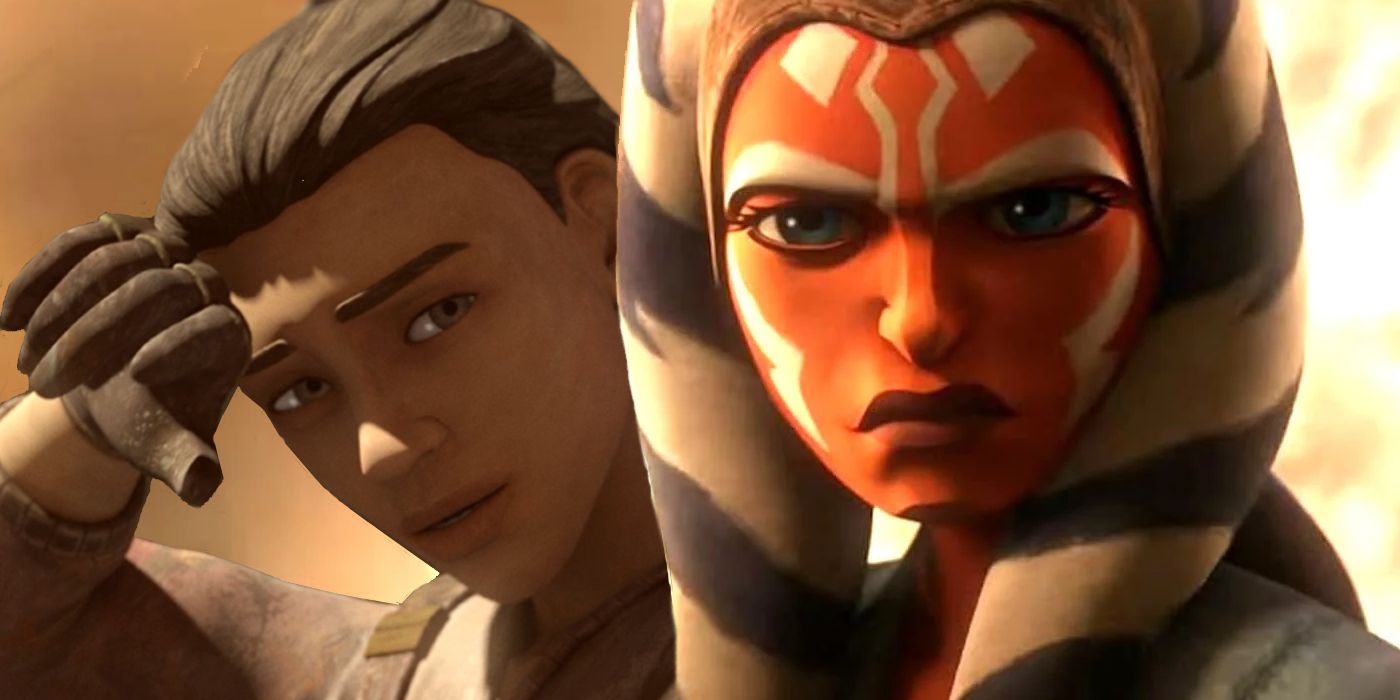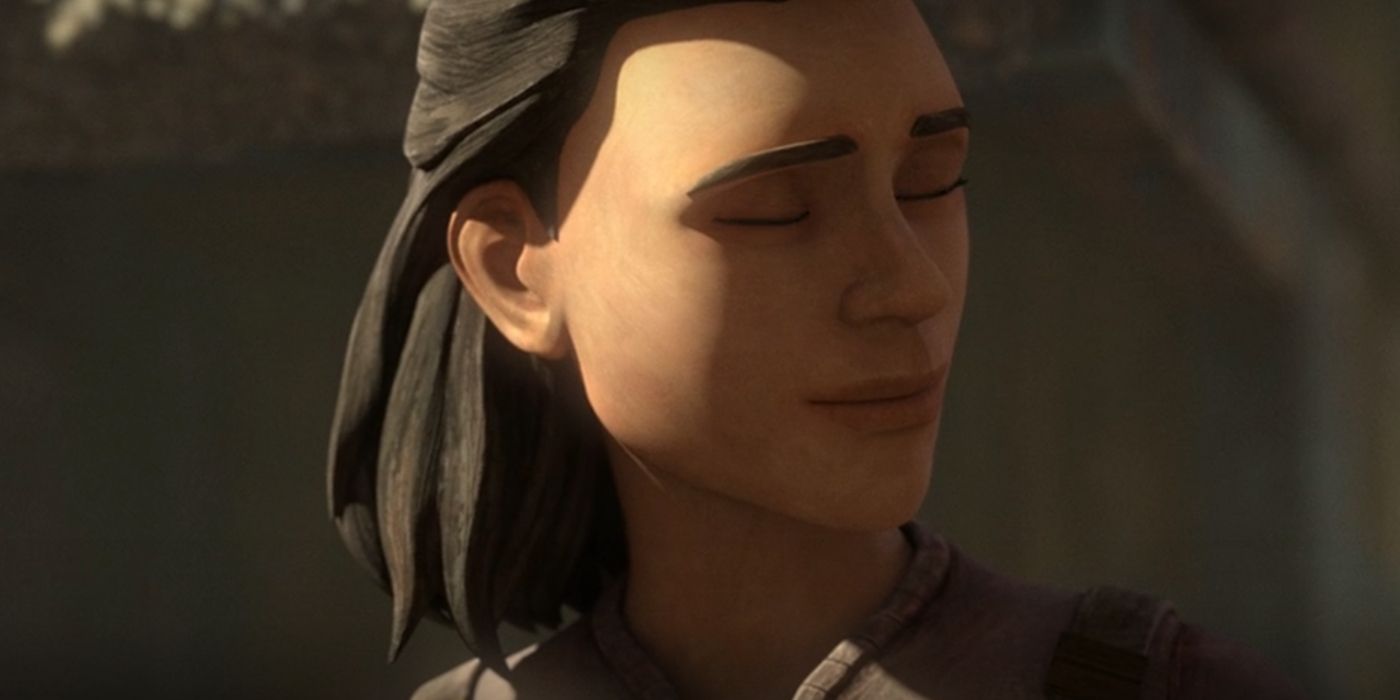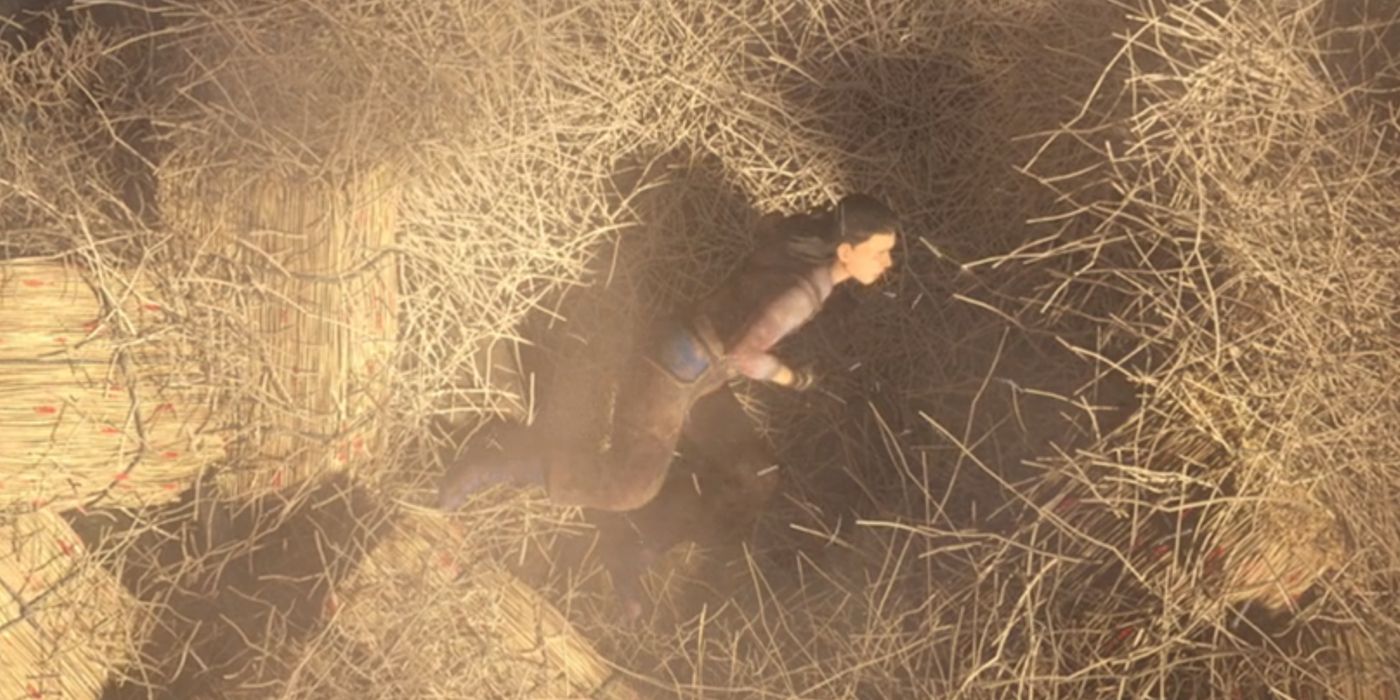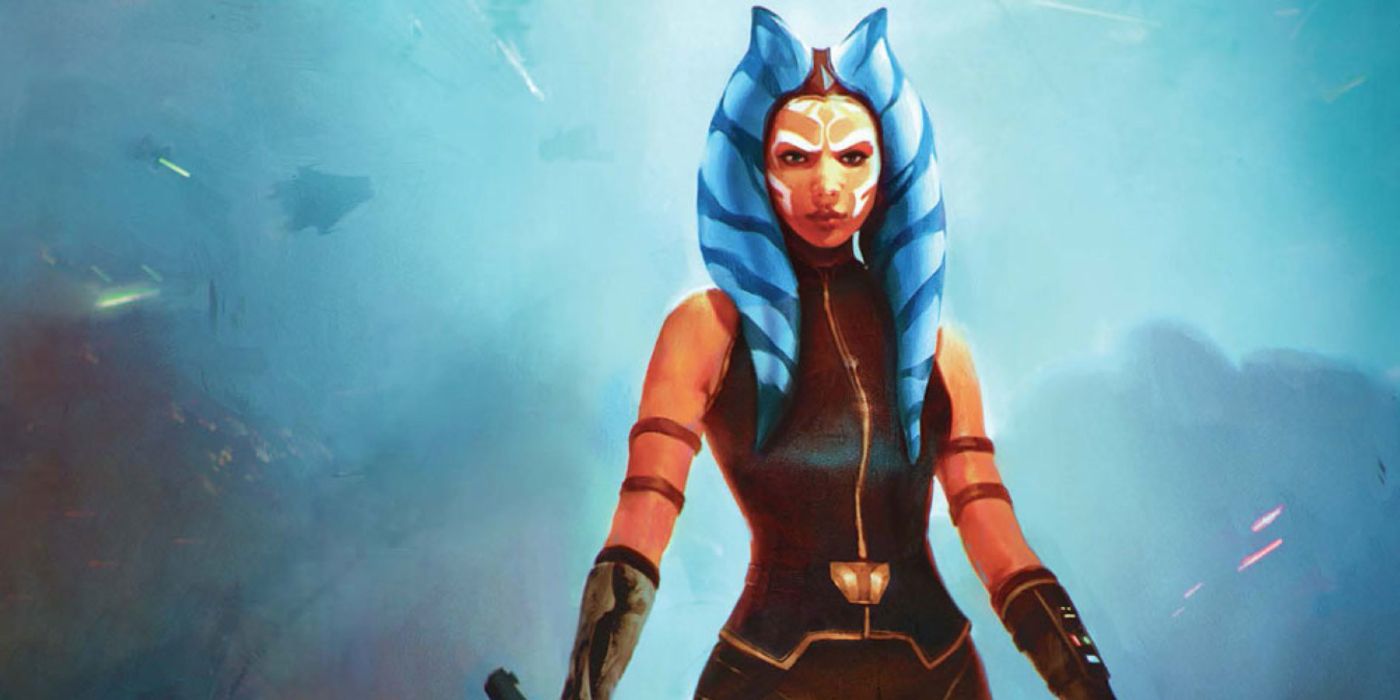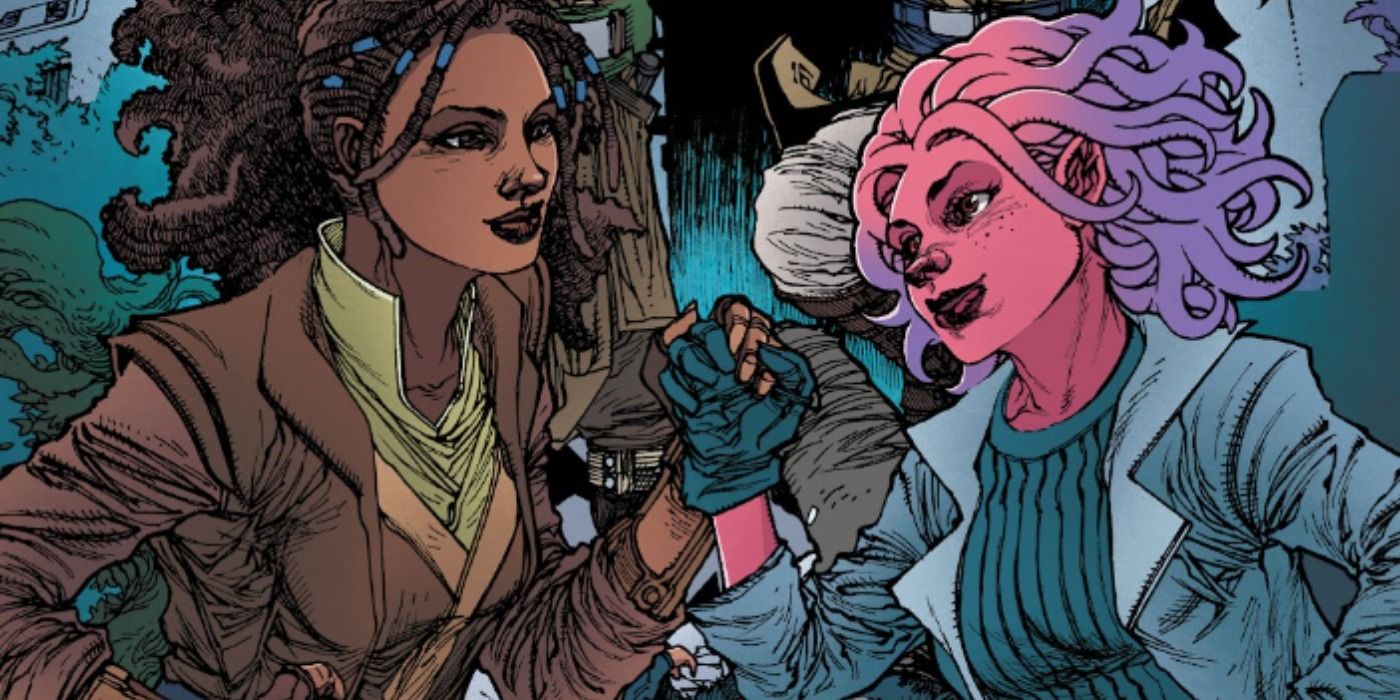This article contains spoilers for Star Wars: Tales of the Jedi episode 6.Star Wars: Tales of the Jedi might have effectively erased one of the Disney era's first LGBTQ+ characters. It's sadly a matter of record that the Disney era of Star Wars has had a major problem in terms of LGBTQ+ representation (at least as far as the films and TV shows are concerned). Star Wars: The Rise of Skywalker offered a token lesbian kiss in the background, but this was so minor that Disney could easily cut it in Singapore to avoid a higher age rating. Sadly, Lucasfilm continue to make LGBTQ+ mistakes with Star Wars.
Star Wars: Tales of the Jedi episode 6 was very familiar to viewers who engage with the wider transmedia franchise that is Star Wars, because it struck the same story beats as E.K. Johnston's Ahsoka novel. This isn't a coincidence; as Lucasfilm's Dave Filoni explained in an interview with Nerdist, the episode was "based on the same outline I gave publishing for the novel. It was always the same story." In both stories, Ahsoka is living on a farming planet and reveals ability to use the Force when she helps someone in need - leading to an Inquisitor paying her a visit. Even Ahsoka's impressive lightsaber fight is similar, with the former Jedi swiftly defeating the Inquisitor even though she is unarmed. But there is, unfortunately, one crucial detail that's changed; Star Wars: Tales of the Jedi has erased one of the Disney canon's first LGBTQ+ characters, while also whitewashing a Black character.
Kaeden Larte Was Very Important For Star Wars
In E.K. Johnston's novel Ahsoka, the former Jedi became a close friend of two Black sisters who lived on the farming moon of Raada. The elder of the two sisters, Kaeden Larte, had befriended Ahsoka when she first arrived on the moon and she helped Ahsoka to settle in. A year after the events of Star Wars: Episode III - Revenge of the Sith, the residents of Raada attempted to rebel against the Empire in response to Imperial restrictions and the introduction of new crops that would exhaust the soil of nutrients. This was a spontaneous rebellion, nothing to do with what would become the Rebel Alliance, and these rebels were swiftly defeated. Ahsoka refused to participate, but was unable to stand by and watch them die.
E.K. Johnston's books have been tremendous in terms of adding diversity to the Star Wars galaxy. The book version of Ahsoka was a trailblazer, immediately developing a Black woman as a major supporting character and ending by establishing her future role in the Rebel Alliance at the point when Ahsoka called upon Bail Organa to help save these early rebels. She then was revealed to be one of the first explicitly LGBTQ+ characters of the Disney era, when she admitted her attraction to Ahsoka. "I could kiss you," she told the former Jedi Padawan. "Not now, I mean. My timing is terrible and you have all these Jedi hang-ups. I just wanted you to know in case we die." Ahsoka's befuddled response led many to suggest that she could also be considered both asexual and aromantic.
But Star Wars: Tales of the Jedi's Ahsoka stories change all that. Although Filoni claimed to be telling the same story, he clearly didn't bother to revisit E.K. Johnston's version of it, simply going with his own iteration based on the notes he'd given to Lucasfilm Publishing. The Larte sisters are gone, replaced with a pair of white siblings, and there's no hint that one of the replacements might be considered queer. A prominent Black LGBTQ+ character has literally been erased in the story's retelling
Star Wars All But Completely Erases Kaeden Larte From Canon
It is possible to make this work in terms of continuity, but the fix is awkward. Another story could suggest that Ahsoka decided not to join the rebellion after Star Wars: Tales of the Jedi episode 6, instead heading to another rural community and experiencing strikingly similar events that led her to call on Bail Organa once again. Star Wars canon is messy, largely because there are so many stories told in countless different mediums, and fans often engage in head-canon to try to fix them. What's more, as The Dork Side of the Force notes, there is some evidence Lucasfilm deliberately left wriggle-room for this argument; the two siblings in Star Wars: Tales of the Jedi were originally named, but Lucasfilm chose to remove their names, presumably because they realized the characters were too different to the Larte sisters of the book.
But it's important to remember that, although there is the potential for a clumsy fix, this would be an afterthought or a headcanon. Filoni's point remains; that Star Wars: Tales of the Jedi episode 6 is based on the same notes he passed on to Lucasfilm Publishing for Johnston's novel. As he put it, "It was always the same story." As far as Lucasfilm is concerned, the Star Wars: Tales of the Jedi timeline runs up to the moment in which Ahsoka joined the rebellion. There's no room for Kaeden Larte in that story (and the hint of Ahsoka's queerness, which meant so much for asexual and aromantic readers, is erased as well).
Tales Of The Jedi's Kaeden Larte Retcon Was Completely Unnecessary
The erasure of Kaeden Larte is particularly disturbing because it was so very unnecessary. It wouldn't have taken much to adjust the skin tones of the two siblings in Star Wars: Tales of the Jedi episode 6, and a single line of dialogue could have alluded to the older sister being queer. The decision not to name the characters makes this feel almost purposeful; as though Lucasfilm Animation created this story, somebody realized they'd whitewashed a Black character and removed a sexual orientation, and they tried to work around the mistake rather than fix it. Star Wars has a history of such LGBTQ+ mistakes, and this one could have been avoided with ease.
This issue becomes even more problematic when it is considered in the light of recent Star Wars trends. Lucasfilm Publishing has always been light years ahead of the films and TV shows in terms of diversity and representation, with both Black and queer characters introduced in canon books and comics from as far back as 2015. This was particularly important given Lucasfilm had stressed they were abandoning the old tiered approach to continuity and canon, which had effectively played different mediums against one another, and that new books and comics were equally canon to the movies. It meant these new characters really did matter, as much as anyone seen on-screen.
But newer Star Wars has begun breaking the canon, with blatant contradictions hand-waved away with the excuse different versions are true "from a certain point of view." Previously seen as something of a bad habit only of note to hardcore fans, this approach has now effectively erased a Black LGBTQ+ character. This raises real concerns for the future, as Star Wars TV expands into the High Republic Era currently being explored in books and comics that are notable for their inclusion of both queer and Black characters.
Star Wars Needs To Improve Its LGBTQ+ Representation
Star Wars: Tales of the Jedi serves as just another illustration of a longstanding problem; the sad fact that Star Wars needs to improve its representation, especially in TV and film. Andor is best seen as a trailblazer for the franchise, a Disney+ TV show that remembers Star Wars has always been political, making overt comments about prejudice and showing the franchise's second on-screen queer couple (the rebels Vel Sartha and Cinta Kaz). Still, the fact they are only the second is telling, and shows how much improvement needs to be made.
Lucasfilm Publishing continues to show the way, effortlessly integrating LGBTQ+ representation into its books and comics. Unfortunately, as noted, even this seems to be under threat; maintaining that element doesn't seem to be a priority for Lucasfilm Television in any adaptations, as indicated by the sad example of Kaeden Larte. Hopefully there will be enough of a backlash to Star Wars' latest clumsy mistake to force Filoni and his Disney+ teams to realize their error.

